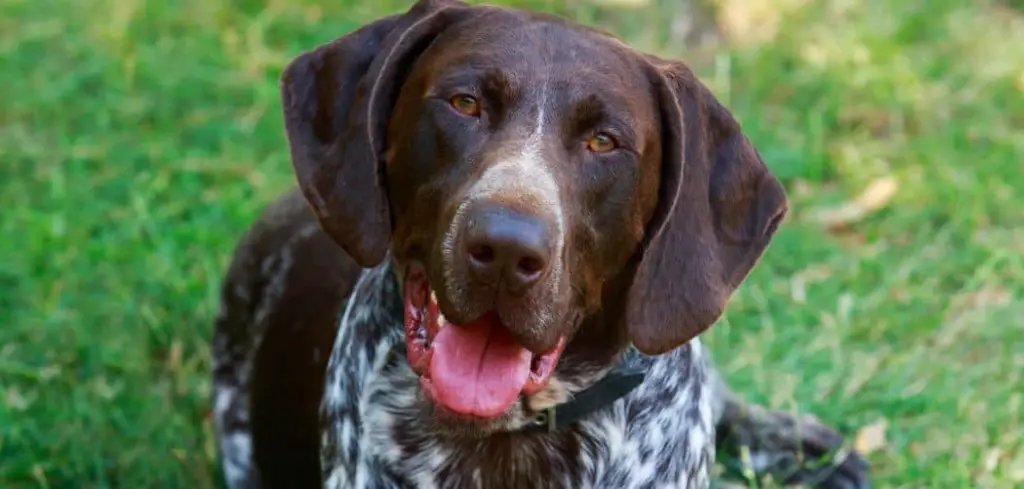When your dog is panting heavily while simply lying down or not being active, it can feel alarming — and rightly so. Excessive panting at rest may point to underlying medical issues, and it’s important to pay attention.
We outline the causes of excessive panting at rest in dogs, what you can do at home, and when to seek veterinary help.
Table of Contents
Dog Panting Excessively at Rest — Why It Happens
Panting when a dog is not exercising or exposed to heat can be a red flag for health issues. This could include respiratory problems, heart disease, anxiety, pain, or even hormonal imbalances like Cushing’s disease.
Sometimes, fever or an undetected infection can also drive up your dog’s body temperature, causing panting.
Since your dog is at rest, these symptoms shouldn’t be dismissed as normal cooling behavior.

Common Causes of Dog Panting Excessively at Rest
Respiratory Illness
Conditions such as pneumonia, bronchitis, or laryngeal paralysis can make it harder for your dog to get enough oxygen. Even at rest, they may pant in an effort to breathe easier.
You may also notice coughing, noisy breathing, or fatigue. This is particularly concerning because dogs in respiratory distress often worsen quickly without prompt care.
Heart Disease
Dogs with heart issues, like congestive heart failure or murmurs, may struggle to circulate oxygen-rich blood efficiently. Panting while resting is a key sign that the body is working harder to compensate.
Other warning signs include fatigue, exercise intolerance, and a bloated abdomen from fluid buildup. Panting at rest may suggest your dog’s heart is under strain.
Pain or Discomfort
Panting is one of the most common signs of pain in dogs. Even when not moving, a dog experiencing pain from arthritis, injury, or internal conditions might pant due to stress.
They may also show signs like restlessness, licking a specific area, or avoiding movement. Pain can be hard to spot, but excessive panting at rest can be a subtle clue.
Read more: Dog Panting Excessively (Here’s why)
Anxiety or Stress
Emotional distress can also cause physical symptoms. A dog with separation anxiety or generalized anxiety may pant excessively even when resting, especially if a trigger is nearby — such as being alone, hearing loud noises, or sensing change in routine.
Look for other signs of anxiety, like trembling, pacing, hiding, or vocalization. Behavioral causes are often overlooked but very real.
Cushing’s Disease
Cushing’s disease (hyperadrenocorticism) is a hormonal disorder in dogs that causes elevated cortisol levels. One of the hallmark symptoms is excessive panting — even at rest.
You may also notice increased drinking and urination, hair thinning, and a pot-bellied appearance. Because it develops gradually, this condition is often mistaken for normal aging.
Fever or Infection
When your dog has a fever from a bacterial or viral infection, their internal temperature rises. Panting helps them regulate that heat.
Even at rest, a feverish dog may pant to try to cool down. Other signs might include lethargy, loss of appetite, or a warm nose and ears.
What to Do If Your Dog Is Panting Excessively at Rest
First, check for any obvious stressors — is your dog anxious, hot, or in pain? Remove environmental triggers where possible and offer water and a quiet, cool resting spot.
Keep a close eye on their breathing. If they’re breathing with their mouth open, flaring nostrils, or their chest is heaving rapidly, this may indicate respiratory or cardiac distress.
Look for patterns — is the panting only happening at certain times of day? After meals? During storms? Documenting this can help your vet.
You can take their temperature with a pet thermometer. A normal dog temperature ranges from 101–102.5°F (38.3–39.2°C). Anything higher may suggest fever.
Avoid giving any over-the-counter medication unless directed by your vet. Many human medications are toxic to dogs.
When to Call or Visit Your Vet
Contact your vet promptly if:
Panting is persistent, not resolving with rest
Your dog has pale gums or difficulty breathing
There’s coughing, gagging, or a bloated belly
Your dog appears lethargic or won’t eat
You suspect pain, fever, or have seen vomiting/diarrhea
Even if your dog is acting somewhat normal, panting at rest is not something to overlook. It often signals a deeper issue, especially in older dogs.
Read more: Dog Panting Excessively in Crate (Here’s why)
Key Takeaway
If your dog is panting excessively at rest, it’s a sign that something may not be right internally — especially if it comes on suddenly or doesn’t resolve.
From anxiety to heart disease, there are several reasons your dog may be trying to catch their breath even when lying still.
Don’t dismiss it. Monitoring their symptoms, making them comfortable, and calling your vet when needed could make all the difference.
Stay observant, stay calm, and trust your instincts — you know your dog best.
